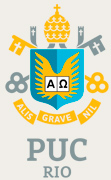Vol. 37, N° 3, Sep/Dec, 2015
Is IPE just ‘boring’, or committed to problematic meta-theoretical assumptions? A critical engagement with the politics of method
Heloise Weber

Abstract
In my contribution to this forum on IPE, my aim is to add further to the critical interventions in the debate ignited by Benjamin Cohen. The call to discuss the state of IPE has been timely, though not only because (some) IPE journals have indeed become uninteresting; much more is at stake. Intellectual debate in the field has now not only narrowed, but has also shifted away from engaging the underlying premises of (global) development, inequalities, and relations of domination. As such, the mainstream framing of IPE is arguably also implicated in a project of ‘gate keeping’. This is not to say that the intellectual richness and creativity that Cohen has called for in the study of IPE does not exist; such work is pursued by scholars of IR, more broadly conceived, and not just by those in other disciplines. Such richer scholarship has for instance, been advanced by historical sociologists, postcolonial theorists, and critical scholars of global development/global political economy including many working from feminist political-economic perspectives. The absence of an engagement with such perspectives in the mainstream of IPE can perhaps be explained to some extent by reference to ideological dispositions and attempts to maintain a hold on the disciplinary core along epistemological and methodological premises committed to ostensibly power-free and value-free analysis. The consequences are felt, as Cohen notes, also in the context of training and preparing future generations of IPE scholars, where current practices tend to reproduce students unable to ‘ask and respond to the big questions’, and who have instead come to be satisfied with applying ‘accepted’ methods. Critical scholars, on the other hand, have continuously pushed beyond the analytical and theoretical boundaries, engaging for example, with questions of power, domination and resistance, and more often than not such analyses are grounded in empirical research. In this contribution, I aim to demonstrate, through a critical reconstructive sketch, how mainstream IPE falls short, and what the value is of alternative, relationally conceived, analytical approaches.
Keywords: IPE – Politics of Method – Formal Comparison – Development – State-Centrism – Inequality – Poverty
 Instituto de Relações Internacionais
Instituto de Relações InternacionaisRua Marquês de São Vicente, 225 - Vila dos Diretórios, Casa 20, Gávea - Rio de Janeiro - RJ, Brasil
Tel/Fax: +55 21 3527-1557 3527-1558 3527-1560

